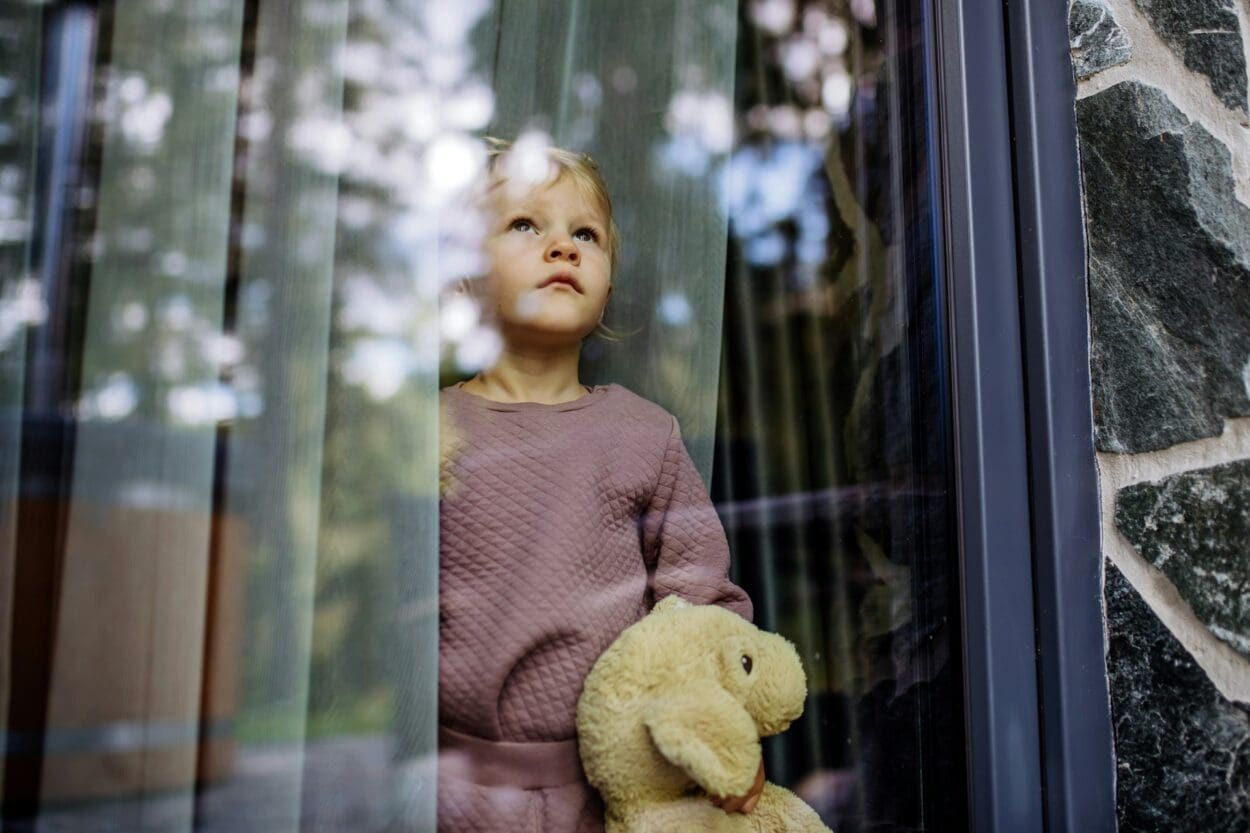The grieving process is complicated for all of us. It can be especially challenging for children to navigate. A multitude of factors can play into your child’s grieving process such as age, understanding of death, emotional processing skills, and more. Depending on your child’s age, they may not even fully understand the concept of death. Imagine how confusing it must be for a young child to learn that someone they love is gone forever.
Just like adults, kids will process and move through grief differently. Everyone’s grieving process is a unique process to them. Sure, there are stages of grief that we may all move through – but that doesn’t mean we move through them similarly. Children grieve differently than adults do, so it’s important to respond to their grief in a way that will help them. Continue reading as we share age-appropriate ways to help kids cope.
Kids and Grief
As stated above, children grieve differently than adults do. Multiple factors play into how they may respond to a loss. One important factor to pay attention to is their age. As children grow, their brains continue to develop. Meaning a 5-year-old child and a 9-year-old child will likely have vastly different outlooks on the concept of death due to their understanding.
Just because your child may not fully understand the concept of death, that doesn’t mean they won’t be troubled when someone close to them passes away. They can still experience intense emotions such as anger or sadness when faced with loss. Some children may respond to loss intensely – strongly feeling emotions such as despair or anger. On the other hand, some children may have minimal responses to loss and want to get back to their playtime. Both responses are natural.
How Grief Changes With Age
For very young children or toddlers, likely, they won’t have a clear grasp of the concept of death. This is because children this age struggle with the concept of the permanency or meaning of death. The National Child Stress Network recommends answering all questions your child has about death honestly. This helps them better understand the loss.
As your child gets older, they will start to understand the meaning and permanency of death. This understanding doesn’t make grieving easier for them. Kids who are grieving may become more anxiously attached to their caregivers, may temporarily regress in development, and may withdraw from activities.
How to Support Children Through Grief
It’s important to be patient with your grieving child. Keep in mind that they may have a difficult time accepting the loss. It’s also challenging for children to express their emotions. Depending on their age, they may not understand how to express their emotions or they may withdraw and isolate. Encourage your children to freely express how they feel about the loss.
Encourage them to ask questions to help improve their understanding. Honesty is the best policy here. We understand it may seem noble to shield your children from reality, but it’s better that they know the truth. This will prevent further confusion regarding the loss. We understand that if your child is grieving, it’s likely that you are too. Be kind to yourself while you help navigate your child through loss.
Keeping normal routines is crucial to help a child navigate loss. Loss is confusing and intense. The more “normal” things are for them, the easier they can manage. Spend quality time with your child during this time and ensure that you’re there for them. Support can go a long way.
Age Appropriate Ways to Help Kids Cope
Play
For children, play therapy is incredibly beneficial. This allows them to freely move through their emotions without the pressures associated with talking. It can help them enjoy themselves and have fun during a difficult time. It can also help them process big emotions. Children may use play to act out how they’re feeling.
Provide your grieving child with play opportunities. Solving mazes can mirror the grieving process, roleplaying can help them express their grief, and other methods of play can help them release emotions.
Art
Art therapy has many benefits for grieving children. It provides them with a safe outlet to let out their feelings as well as promotes creativity and distress tolerance. Art therapy can help children form a connection between their minds, hearts, and hands.
Children can fingerpaint their feelings, participate in an intuitive creative expression, create photo collages, decorate a memory box, write a poem, and more. All of these ideas allow children to express their emotions without needing to rely on words.








Leave a Comment